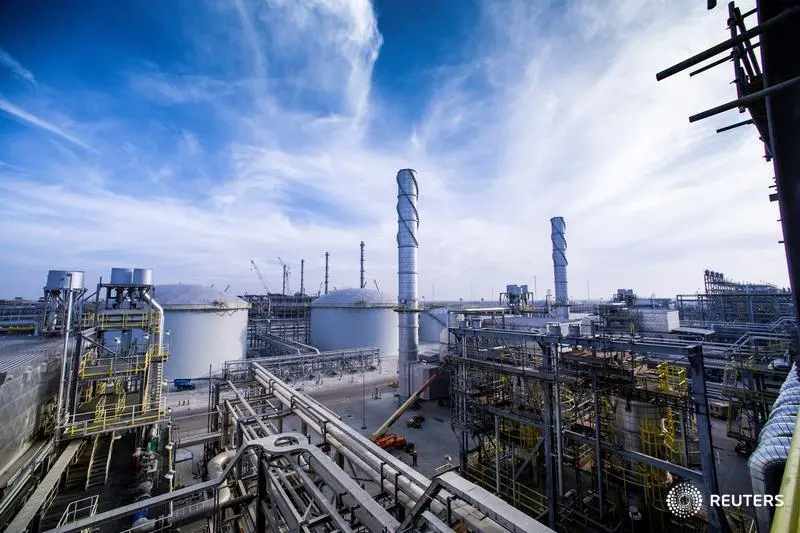PHOTO
SINGAPORE - Riyadh can fast-track Beijing’s currency ambitions in 2019. A new Shanghai crude contract has nibbled at dollar benchmarks over the past 12 months: a win for China, which wants more clout. Saudi Arabia can help it go further by agreeing to price and sell some of its $30 billion in annual oil exports to the People’s Republic in yuan. Russia is already edging this way, and there are benefits to diversity.
Yuan internationalisation has not gone smoothly. Enthusiasm for foreign exchange reform in Beijing has waxed and waned: the currency still accounts for barely 1 percent of global payments. The success of the Shanghai futures contract, launched in March, is hence all the more notable. It is becoming a credible benchmark, with volumes rivalling the Dubai Mercantile Exchange contract.
China’s status as the world’s largest consumer of commodities is its trump card in motivating foreigners to use renminbi — the currency’s official name — for trade and investment. Overseas investors can trade oil and iron ore on the mainland already; more metals, or even soybeans, could be next. Crude, however, remains overwhelmingly traded in dollars. Encouraging more Shanghai trading with market makers and better trading hours will help, but the real catalyst is for suppliers to invoice more in yuan.
Saudi is key. Other than Russia, the kingdom is already the largest oil exporter to the People’s Republic. President Trump may have exonerated Crown Prince Mohammed bin Salman after Saudi agents killed journalist Jamal Khashoggi, but Riyadh must prepare itself for flashpoints. One might come in the year ahead, when U.S. sanctions intended to target Iran’s 3 million barrels per day of output are due to kick in properly. If prices spike up again, Trump might blame Saudi and other oil producers for a Dec. 7 decision to cut 1.2 million bpd from the market.
Converting even a small fraction of Saudi exports to China from greenbacks to yuan would be a big step, and could bring Chinese investment into oil giant Aramco. Capital controls make the yuan riskier to hold than dollars, but payments to Chinese contractors on ambitious infrastructure projects can absorb at least part.
Russia, under pressure from U.S. sanctions, has said it will price some gas in the currency, and could do more in oil too. Iran and Angola may follow. If Saudi starts moving in the same direction, the cogs could really start turning.
On Twitter https://twitter.com/claramarquesrtr
- This is a Breakingviews prediction for 2019. To see more of our predictions, click https://reut.rs/2R6H5pG
CONTEXT NEWS
- China launched its first oil futures contract in March, a yuan-denominated offering to compete with global dollar-denominated benchmarks, London’s Brent and U.S. West Texas Intermediate (WTI). The contract, run by the Shanghai International Energy Exchange, was first approved in 2014.
- Russian liquified natural gas (LNG) producer Novatek said on Sept. 12 that it planned to sell some of its future production to China in yuan.
- Saudi Aramco agreements with Chinese customers announced in November could take the volume of its 2019 crude supply to China to 1.67 million barrels per day. China imported 1.39 million bpd of Russian crude in January to October 2018, about 15 percent of total Chinese imports, customs data showed. It bought 1.04 million bpd of Saudi crude in the first 10 months of 2018.
- According to SWIFT, the Chinese currency, officially known as the renminbi, accounted for just over 2 percent of global payments in August 2018, compared to 1.9 percent in August 2016. Its share of international payments was just 1.3 percent, mostly accounted for by Hong Kong. The dollar, by contrast, made up just under 40 percent of the total and 43 percent of international payments.
- For previous columns by the author, Reuters customers can click on MARQUES/
- SIGN UP FOR BREAKINGVIEWS EMAIL ALERTS: http://bit.ly/BVsubscribe
(Editing by Pete Sweeney and Sharon Lam) ((clara.ferreira-marques@thomsonreuters.com; Reuters Messaging: clara.ferreira-marques.thomsonreuters.com@reuters.net))





















